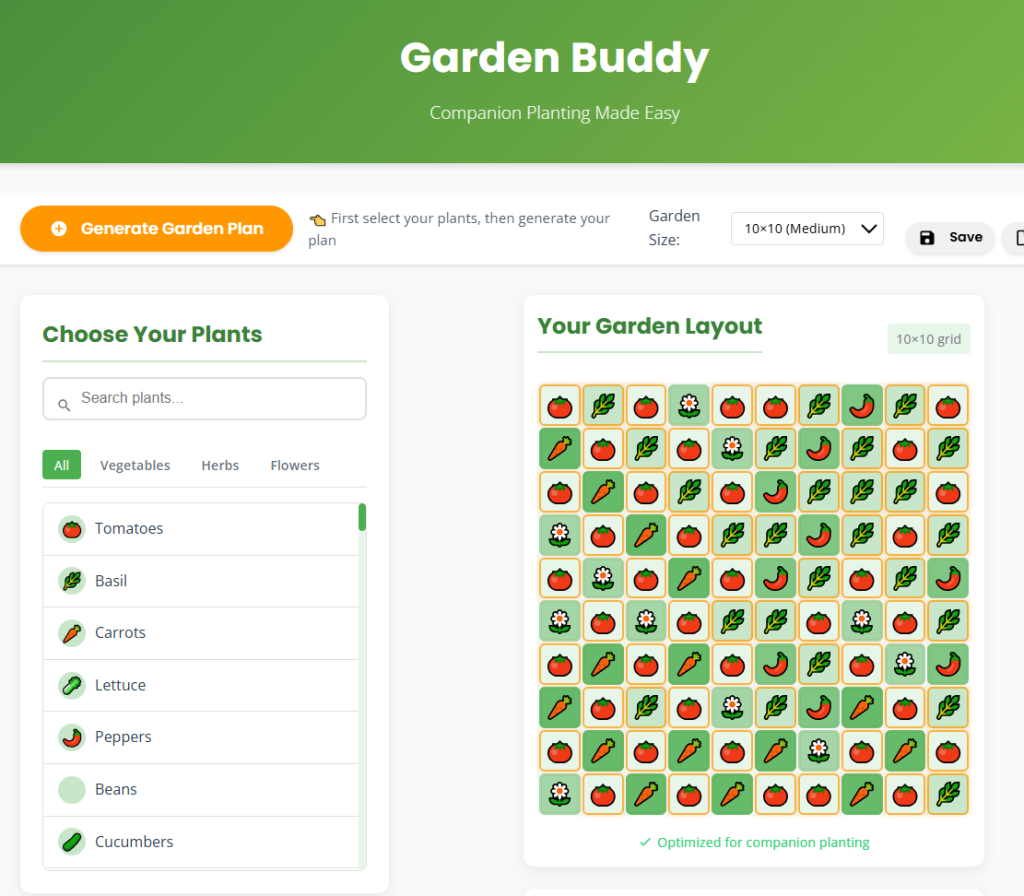
Growing and Companion Planting with Turkish Rocket
Hey there, fellow gardening enthusiast! Today, I’m excited to dive into something really special—Turkish Rocket. Have you heard of this delightful perennial? If not, you’re in for a treat! Turkish Rocket (also known as Diplotaxis erucoides) is not just a beautiful addition to any garden, but it’s also relatively easy to grow, making it a favorite among gardeners like me.
Introduction to Turkish Rocket
Let’s start with some basics. Turkish Rocket thrives in well-drained soil and loves full sun. It’s pretty hardy, so it can tolerate a variety of conditions. Plus, it’s a biennial plant, which means you’ll see lush green leaves in its first year and flowers in its second. Isn’t that neat?
But how did this gem come about? Turkish Rocket hails from the Mediterranean region, where it was cherished for its culinary uses. The leaves have a lovely peppery flavor, making them perfect for salads and garnishes. As for growing it, you have options! You can grow it in the traditional garden bed or even verticall—yes, you can train it to climb a trellis for an eye-catching effect. Trust me, it adds a unique touch to your garden!
Now, there are a few different varieties of Turkish Rocket you can explore. The standard type with bold, green leaves works wonders. Still, you might also want to look for less common variants that offer slight differences in flavor or growth habits. Experimenting with these could be an exciting journey for your palate!
The Perks of Companion Planting for Turkish Rocket
You might be asking, “Why should I bother with companion planting?” Well, let me tell you, the benefits are numerous! Companion planting can enhance growth, deter pests, and even improve flavor. When you plant Turkish Rocket alongside the right companions, you create a harmonious environment that boosts everyone’s health—plants and gardeners alike!
Good Companion Plants for Turkish Rocket
So, what are the best companions for Turkish Rocket? Let’s break it down.
Fruit Trees
1. **Apple Trees**: These beauties are well-suited to grow alongside Turkish Rocket. Not only do their roots establish a solid foundation, but the diseases that often plague apples, like fire blight, can sometimes be deterred when planted near the Rocket. You might want to plant them at least 4-6 feet apart to avoid competition for nutrients.
2. **Citrus Trees**: Varieties like lemon and orange trees thrive in similar conditions as Turkish Rocket. They provide shade that can help keep the Rocket leaves cool during hot summer months. Just make sure to leave around 6-8 feet of space between them to ensure ample air circulation and sunlight.
Berries
1. **Blueberries**: Ah, who doesn’t love a handful of sweet blueberries? They’re natural companions to Turkish Rocket! The acidic earth that blueberries prefer will often benefit the Rocket, too. Try to space them about 3-4 feet apart to allow each bush room to flourish.
2. **Raspberries**: These fragrant beauties not only look stunning but actually create a protective canopy that can prevent Turkish Rocket from bolting too early. Place them about 3-5 feet away—enough for airflow but close enough to enjoy each other’s company.
Plants to Avoid
Surprisingly, there’s not really a list of plants to avoid with Turkish Rocket. It plays nicely with most garden companions! If any particular plants do seem to clash with it, they typically won’t have significant negative consequences. I’d suggest keeping an eye on spacing to ensure everything has room to grow, usually around 3-6 feet from both the Rocket and your fruit trees, depending on the specific plants.
Wrapping It Up
To sum things up, Turkish Rocket is a versatile plant that can thrive alongside fruit trees and berry bushes, enhancing both their yields and your garden’s biodiversity. With a little planning, you’ll create an oasis that bursts with life, flavor, and vibrance. Plus, there’s something truly satisfying in watching your garden flourish! So, what are you waiting for? Grab a pack of Turkish Rocket seeds and let’s get growing! Happy gardening!
Planting Guidelines for Companion Plants to Turkish Rocket
When it comes to planting Turkish Rocket (which I absolutely adore for its spicy leaves), it’s essential to understand how it interacts with its companions. Planting the right neighbors can lead to a vibrant, healthy garden. So, let’s dig in and explore effective spacing recommendations for various types of companion plants!
General Rule for Spacing Most Fruit Trees
Fruit trees typically require a bit of breathing room, so aim for a spacing range of 10 to 15 feet apart. This distance allows them to grow without crowding each other and helps with air circulation. For example, consider planting Apple Trees or Peach Trees close to your Turkish Rocket, both of which can thrive if you give them enough space.
Tip: Adjust the spacing based on your specific garden conditions. If you have rich, well-draining soil, you might find your trees growing more vigorously, thus needing a tad more room.
Berries from Turkish Rocket
Berries like to cozy up but can still stand their ground. A good rule of thumb is to space them around 2 to 4 feet apart. Great companions include Blueberries and Raspberries; they won’t only look lovely next to your Turkish Rocket, but they’ll also benefit from a bit of shared sunlight!
Tip: Pay attention to the moisture levels; berries love water, but they don’t like soggy soil!
Guidelines for Tall Companions
Tall plants can offer shade and support for your Turkish Rocket. Aim for a spacing of 3 to 5 feet apart when planting. Consider Sunflowers or Tomatoes as tall pals—plus, they look striking towered over the Turkish Rocket!
Tip: If you notice any tall plant tends to overshadow the others too much, don’t hesitate to trim them back a bit.
Guidelines for Low-Growing Companions
Low-growing companions are excellent for ground cover and can help suppress weeds. Space them about 12 to 18 inches apart. A couple of great options are Thyme or Chives, which not only grow well alongside but also enhance flavor!
Tip: Look for low-growers that enjoy similar sunlight and water requirements to Turkish Rocket. It’ll save you a lot of headaches!
Guidelines for Strongly Aromatic Companions
Aromatic plants work wonders in repelling pests while enhancing the flavor of nearby crops. For these, I suggest spacing them around 1 to 2 feet apart. Basil and Oregano are fantastic options alongside Turkish Rocket—they’ll bring a fragrance and taste explosion!
Tip: Some aromas can actually deter pests, so don’t be shy to experiment with various companions to see what works best.
Guidelines for Nutrient-Heavy Feeders
Nutrient-heavy feeders typically require a greater distance to avoid competition for resources. Aim for 3 to 4 feet apart. Consider planting companions like Zucchini or Sunflower, which enjoy the rich nutrients while standing boldly next to Turkish Rocket.
Tip: Enriching the soil with compost can help all your plants thrive, especially nutrient-hungry ones like these.
Guidelines for Spreading or Vining Companions
When dealing with spreading or vining plants, I recommend a distance of about 2 to 3 feet apart. Cucumbers or Squash can be wonderful neighbors for your Turkish Rocket. Just make sure to give them a trellis or some structure to climb if needed!
Tip: Watch closely as these vines grow; you don’t want them overtaking your Rocket! A little pruning here and there goes a long way.
Summary of Fruit Trees and Berries as Companions
Fruit Trees
Fruit trees are wonderful, providing shade and structure in the garden. With their spacing of 10 to 15 feet, they make great companions for Turkish Rocket, as they both enjoy sun. Apple and peach trees thrive together and can also coexist with other low-growing plants like strawberries or even herbs such as mint.
Berries
Berries, with their compact 2 to 4 feet spacing, can draw in beneficial insects and provide delicious fruits! Blueberries and raspberries work great next to Turkish Rocket, but they also cozy up well with other acidic loving companions such as rhubarb or even certain vegetables like carrots.
So there you have it—companion planting with Turkish Rocket can be a delightful journey if the spacing and plant combination are tuned just right. Don’t forget to observe how your plants interact and adjust as needed—happy gardening!

Leave a Reply